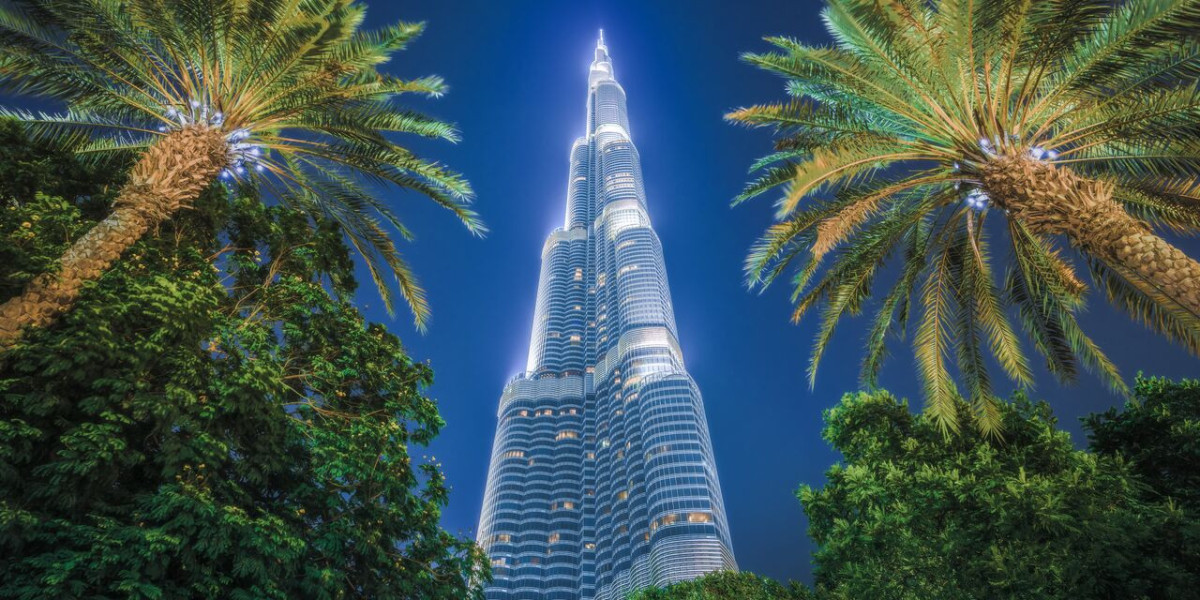Dubai, a global hub of luxury, business, and entertainment, attracts millions of travelers from around the world—and India remains one of the top contributors to this influx. Whether you're heading to Dubai for leisure, work, or long-term stays, choosing the right visa is essential to ensure a smooth travel experience. With multiple visa options available, understanding which one suits your travel plans is the first step toward planning your trip.
For those planning to travel from India, understanding the process and details of obtaining a Dubai visa for Indians is crucial. Each visa type serves a different purpose and caters to different travel needs. In this guide, we will walk you through the top seven types of Dubai visas available for Indian passport holders, helping you make an informed decision before you fly.
1. Tourist Visa (Short-Term Single Entry)
One of the most commonly issued visas, the tourist visa is perfect for those who want to explore Dubai’s attractions, visit family, or simply enjoy a vacation. Typically valid for a short duration (usually 14 to 30 days), this visa is ideal for sightseeing and leisure activities. It's a single-entry visa, meaning once you leave the UAE, you’ll need to apply again for re-entry.
Indian citizens can apply for this visa through various channels, including authorized agents, travel consultants, or official online portals. When applying for a Dubai visa for Indians, ensure that all documentation, such as passport copies, photographs, and travel plans, are in order to avoid delays.
2. Tourist Visa (Long-Term Single Entry)
If you're planning a longer holiday or want to explore not just Dubai but the wider UAE region, the long-term tourist visa might be a better fit. With validity typically around 90 days, this option gives Indian travelers ample time to enjoy a more relaxed and extended visit.
This visa is also suited for individuals visiting family members or attending special events like weddings or cultural festivals. While it's a single-entry visa, it offers flexibility in terms of the duration of stay, allowing travelers to make the most of their trip.
3. Transit Visa
Ideal for travelers with layovers in Dubai en route to another destination, the transit visa allows Indian passengers to stay in the UAE for a short duration, typically 48 to 96 hours. It is important to apply for this visa in advance, especially if your stopover includes an overnight stay or sightseeing plans.
This visa is non-extendable, and you must have a confirmed onward journey from the UAE. The Dubai visa fee for a transit visa is generally lower, making it an economical choice for brief visits during flight layovers.
4. Business Visa
Dubai’s reputation as a business powerhouse means there are numerous Indian professionals and entrepreneurs heading to the UAE every year. The business visa is tailored for individuals attending conferences, business meetings, trade fairs, or planning to explore business opportunities.
This visa allows short to medium-term stays and may require an invitation from a UAE-based company or sponsor. Indian applicants should prepare proper business documentation and itinerary details to meet visa requirements.
5. Student Visa
With world-class educational institutions and a multicultural academic environment, Dubai is becoming a preferred destination for Indian students. The student visa is granted to those who gain admission into recognized educational institutions in the UAE.
Typically valid for the duration of the academic course, this visa can be extended based on academic progression. Students may also need to undergo a medical test and obtain health insurance as part of the visa process.
6. Employment Visa
For Indians seeking job opportunities in the UAE, the employment visa is essential. Sponsored by the hiring company, this visa allows individuals to work legally in Dubai. The employer handles most of the paperwork and approvals, including labor permits and residency requirements.
Applicants will need to undergo medical testing and background checks. The visa is often issued for two or three years and can be renewed based on the employment contract.
7. Residence Visa (Family Sponsorship)
If you're an Indian national already residing in the UAE on a work or long-term visa, you may wish to bring your spouse, children, or parents to live with you. In such cases, the family residence visa allows you to sponsor their stay.
To qualify as a sponsor, you need to meet specific income and accommodation criteria. The family member receiving the visa will also need to undergo standard immigration health checks. This visa is renewable and typically linked to the sponsor’s visa validity.
Essential Tips for Indian Travelers Applying for a Dubai Visa
Plan Ahead: Dubai immigration policies are streamlined, but visa processing can still take a few working days. It’s advisable to apply at least 10-15 days before your travel date.
Document Checklist: Ensure that your passport is valid for at least six months, and provide passport-sized photos, confirmed return flight tickets, and hotel bookings where required.
Financial Proof: Some visa types require proof of sufficient funds. Always be ready with your bank statements or supporting financial documents.
Avoid Overstaying: Each visa comes with a defined duration. Overstaying can result in fines, travel bans, or even denial of future visa applications. Always check your visa's expiry date and exit the UAE on time.
Seek Expert Guidance: Visa rules may change based on travel trends, diplomatic relations, and security policies. It’s wise to consult with authorized agents or embassy representatives if unsure about any requirements related to your Dubai visa for Indians.
Understanding the Dubai Visa Fee Structure
While this article does not include specific figures, it’s important to note that the varies depending on the visa type, processing time, and service provider. Generally, longer-duration visas come at a higher cost, while transit and short-stay visas are more affordable. Additional fees may apply for express processing, document delivery, or add-on services like travel insurance.
Keep in mind that visa fees are non-refundable, even in case of application rejection. Always double-check all submitted information to avoid costly mistakes. Opting for trusted sources and verified agents can also reduce the risk of hidden charges or miscommunication.
Conclusion
Dubai is a city that caters to every kind of traveler from business professionals and entrepreneurs to students, tourists, and families. With a range of visa options designed to suit different needs, Indian citizens have multiple pathways to experience all that Dubai has to offer.
Choosing the right visa type, understanding its benefits, and ensuring timely application are key to a hassle-free journey. Whether you’re looking for a short getaway or a longer professional stint, your Dubai adventure begins with a well-informed visa choice.
As the UAE continues to grow as a leading global destination, the process of obtaining a Dubai visa for Indians is becoming more streamlined and accessible. Just be sure to keep track of all documentation, comply with regulations, and factor in the applicable Dubai visa fee when planning your budget.







